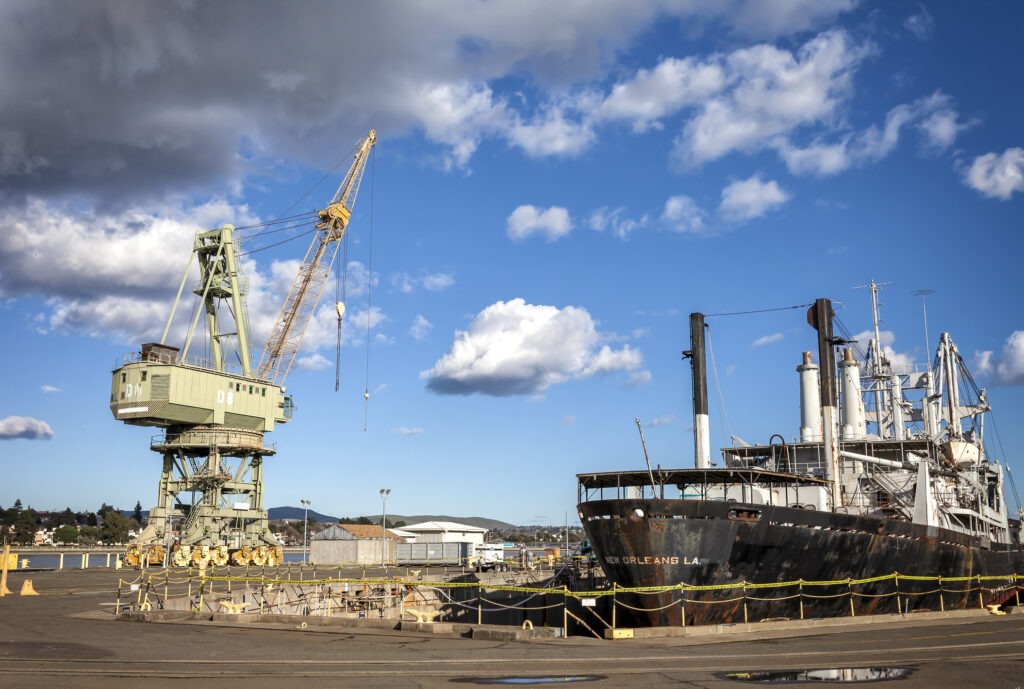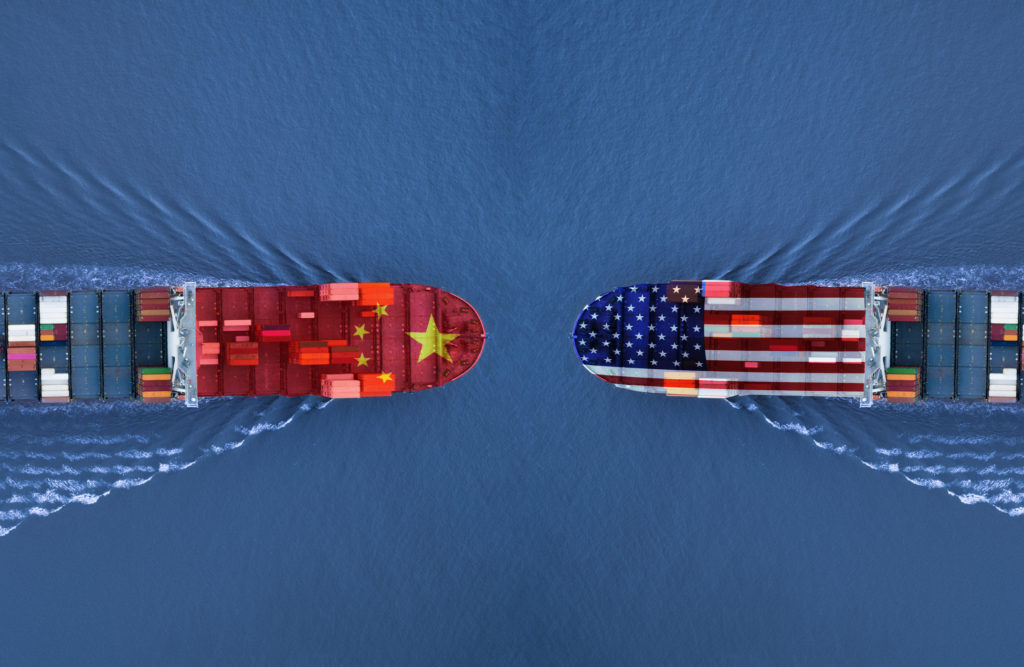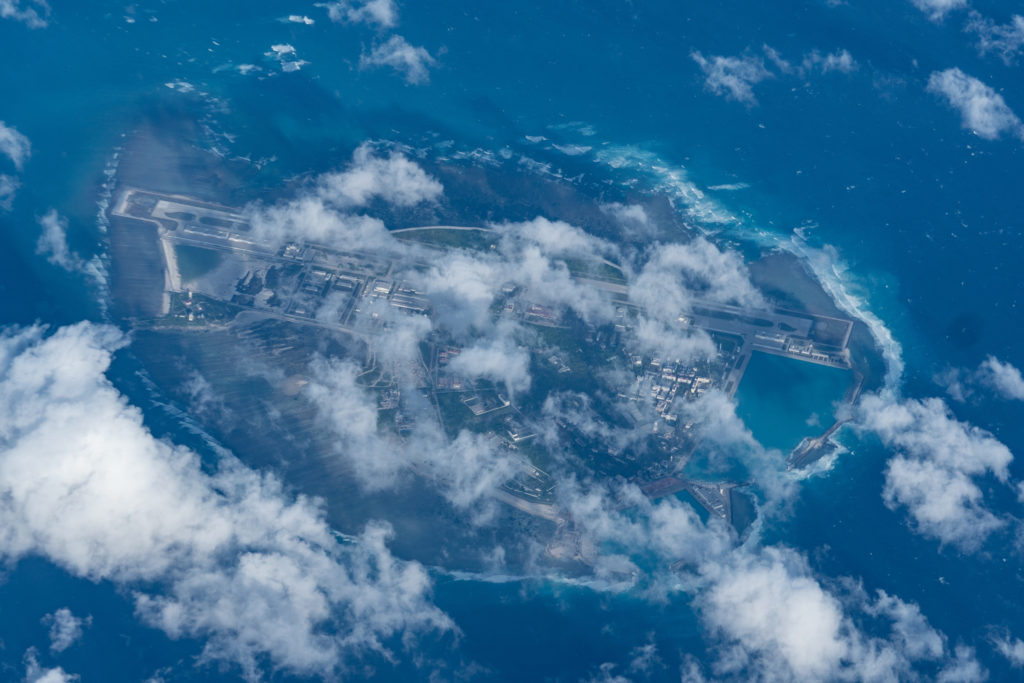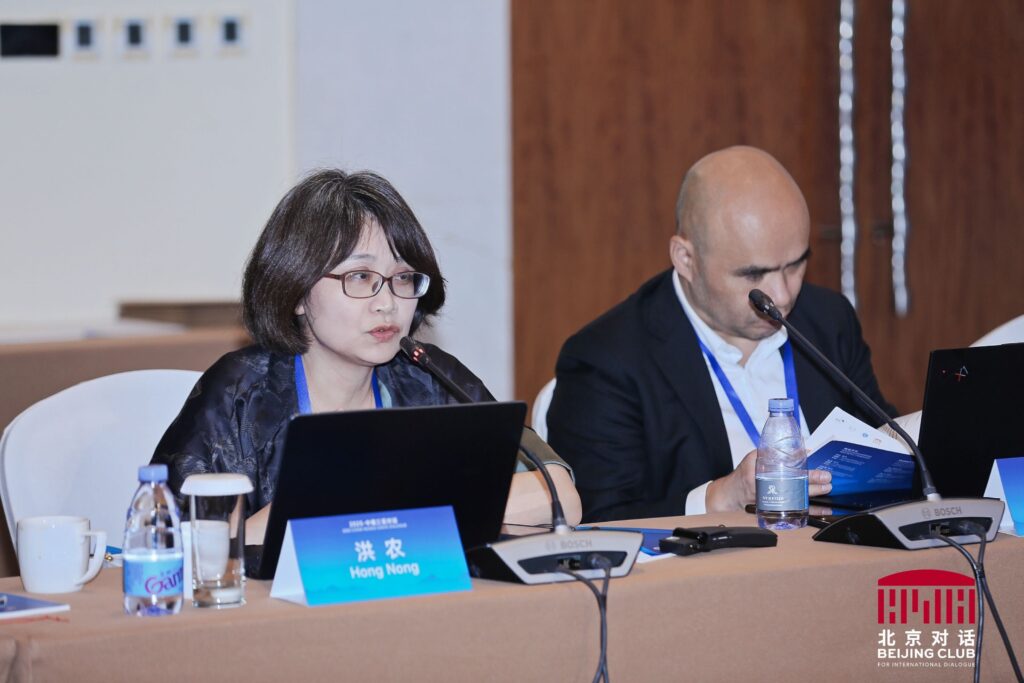
ICAS Maritime Affairs Handbill (online ISSN 2837-3901, print ISSN 2837-3871) is published the last Tuesday of the month throughout the year at 1919 M St NW, Suite 310, Washington, DC 20036.
The online version of ICAS Maritime Affairs Handbill can be found at chinaus-icas.org/icas-maritime-affairs-program/map-handbill/.
“Norway Proposes Joining New Global Treaty to Protect Oceans”
March 21 – The Fishing Daily
[Norway, United Kingdom]
Norway has proposed joining a new global treaty aimed at protecting marine biodiversity in international waters, reinforcing its commitment to sustainable ocean management. This initiative aligns with global efforts to establish marine protected areas and ensure equitable sharing of marine resources while strengthening Norway’s role in international ocean governance.
“Malaysia Approves A New Search For Mh370 Wreckage In The Indian Ocean”
March 20 – NPR
[Malaysia, U.S., Australia, China, Indian Ocean]
Malaysia has approved a new search for Malaysia Airlines Flight MH370, partnering with Texas-based Ocean Infinity to explore a 15,000-square-kilometer area in the southern Indian Ocean. Under a “no-find, no-fee” agreement, the company will receive $70 million only if the wreckage is discovered, offering renewed hope for answers to one of aviation’s greatest mysteries.
“Government of Samoa Hosts National Workshop on the Ratification and Implementation of the BBNJ Agreement”
March 18 – IUCN
[Samoa, Pacific Islands]
Samoa recently hosted a national workshop on the ratification and implementation of the Biodiversity Beyond National Jurisdiction (BBNJ) Agreement, also known as the High Seas Treaty. The event aimed to strengthen Samoa’s capacity to integrate the treaty’s provisions into national policies, reinforcing its commitment to ocean conservation and sustainable marine resource management.
“British Chagos Islanders Set To Sue UK Government Over Proposed Deal”
March 17 – The Independent
[United Kingdom, Mauritius, U.S.)
Two British women born in Diego Garcia are preparing to sue the UK government over its plan to transfer sovereignty of the Chagos Islands to Mauritius, which they argue excludes the Chagossian people from determining their homeland’s future. This legal challenge highlights ongoing disputes regarding the islands’ sovereignty and the strategic US-UK military base on Diego Garcia.
“Plans for a Chinese Port Roil the Politics of a Former Soviet Nation”
March 13 – New York Times
[Georgia, China, Russia, U.S., EU]
Georgia’s decision to award its first deep-sea port project to a Chinese company, after canceling a contract with Western firms, has sparked political controversy. The move is seen as a shift toward closer ties with China and Russia, raising concerns about Georgia’s relations with the West.
“India, Mauritius Upgrade Strategic Ties With Eye On China”
March 12 – VOA
[India, Mauritius, China]
India and Mauritius have upgraded their relationship to an “enhanced strategic partnership,” focusing on maritime security, defense, and regional cooperation, with a particular emphasis on countering China’s growing influence in the Indian Ocean. This strengthened bond includes agreements on trade, development projects, and support for Mauritius’ sovereignty over the Chagos Archipelago.
“Charting Key Regulatory Change Across Maritime Law in 2025 and Beyond”
March 2 – The Maritime Executive
[EU, U.S., IMO]
Global maritime governance is undergoing changes, with a focus on stricter environmental regulations. The International Maritime Organization is driving global efforts to reduce emissions from vessels, while countries like the EU and the U.S. are implementing national laws to address pollution and digital threats in the maritime sector.
“NSAC Calls For Fisheries And Climate Adaptation In EU Oceans Pact”
February 26 – The Fishing Daily
[EU, NSAC]
The North Sea Advisory Council (NSAC) calls for stronger governance within the EU Oceans Pact, urging the integration of fisheries management with climate adaptation strategies. They advocate for policy frameworks that enhance resilience and ensure that fishing industries can effectively respond to climate challenges, while also promoting sustainable practices across the region.
“Pentagon Chief To Visit Philippines For Security Talks, Envoy Says”
March 21 – Marine Corps Times
[U.S., Philippines]
U.S. Defense Secretary Pete Hegseth is set to visit the Philippines for high-level security talks, focusing on strengthening defense cooperation between the two nations. The discussions will address growing concerns over regional security and stability in the South China Sea.
“Taiwan’s President Pushes To Increase Defense Budget Amid Rising Threat From China”
March 21 – NPR
[Taiwan, China, U.S.]
Taiwan is increasing its defense budget to strengthen its military in response to growing concerns over China’s actions. The budget boost includes acquiring advanced weaponry, increasing military personnel support, and extending national service to enhance Taiwan’s defense capabilities.
“An Ocean Away: In Paris, European Defense Officials Confront Confounding ‘New Period’ In Security”
March 20 – Breaking Defense
[NATO, Ukraine, France]
European defense officials gathered in Paris to discuss the shifting security landscape, focusing on how to strengthen defense capabilities in light of ongoing challenges. Key topics included supporting Ukraine and ensuring NATO’s strategic coherence amid evolving global threats.
“‘Filled With Arrogance’: China Lashes Out At G7 Over Statements On Maritime Security”
March 15 – AP News
[China, Canada, France, Germany, Italy, Japan]
In a joint statement, the G7 has expressed concerns about China’s growing military presence in the South China Sea, while China defends its actions as legitimate and focused on national security.
“Chinese Warships Circle Australia and Leave It Feeling ‘Near-Naked’”
March 12 – New York Times
[Australia, China, U.S.]
China’s recent naval deployment around Australia has raised concerns about Australia’s aging fleet and reliance on U.S. military support. The incident has sparked debate over Australia’s defense capabilities, its security partnership with the U.S., and China’s growing regional presence.
“Yemen’s Houthi Rebels Say ‘any Israeli Vessel’ In Nearby Mideast Waterways Again a Target”
March 11 – Abc News
[Yemen, United Arab Emirates, Israel, Gaza]
The Houthis have declared Israeli-affiliated vessels as targets in key Middle Eastern waterways, escalating maritime security risks in the region. This development threatens global trade routes, raises concerns for non-Israeli vessels, and increases tensions with Western naval forces patrolling the area.
“China Set For Joint Naval Exercise Security Belt-2025 With Russia And Iran”
March 10 – South China Morning Post
[China, Russia, Iran, Oman, Indian Ocean]
China, Russia, and Iran are conducting a joint naval exercise to strengthen military cooperation and improve maritime security. The drills involve simulated attacks, damage control, and search-and-rescue operations.
“On Wider Seas: Italian Naval Deployments and Maritime Outreach to the Indo-Pacific”
March 5 – CIMSEC
[Italy, Australia, China]
Italy is expanding its naval presence in the Indo-Pacific, strengthening partnerships with key regional powers like India, Japan, and Australia while navigating strategic competition with China. Through joint exercises, port visits, and defense cooperation, Italy aims to enhance its geopolitical influence and contribute to maritime security in a region of growing global significance.
“Alliance Launched to Promote Smart Containers and Enhance Trade Security”
March 2- The Maritime Executive
[Belgium, EU]
A new alliance has been launched to advance the use of smart containers, aiming to improve trade security and supply chain efficiency through enhanced tracking and data-sharing technologies. The initiative seeks to standardize container monitoring and strengthen global maritime logistics.
“Greenland And Trump’s Strategy To Deal With China And Russia”
February 26 – GIS Reports
[Greenland, U.S., Russia, China, Arctic]
Greenland’s strategic importance is growing amid the competition between the U.S., Russia, and China. The U.S. is focused on securing Greenland as a key location for military and economic interests, as the region becomes a center for geopolitical rivalry due to its resources and location.
“’Blue Engine’ Drives Global Marine Economy”
March 24 – St. Daily
[China]
China has seen significant growth in its marine economy, with the country’s gross ocean product surpassing 10 trillion RMB in 2024. The article highlights China’s commitment to integrating green and low-carbon practices in marine industries, focusing on innovations in renewable energy, marine manufacturing, and deep-sea exploration.
“House Hearing To Survey ‘Blue Economy’ Innovation”
March 24 – E&E News
[U.S.]
The U.S. House of Representatives is set to hold a hearing focused on innovations within the “blue economy,” exploring ocean-based industries and their environmental and economic impact. The hearing will address technological advancements in marine research and emphasize the importance of public-private partnerships for sustainable growth and national security.
“Link Between Oceans Economy and Oil Gas Sector”
March 21 – ESI Africa
[South Africa]
South Africa’s ocean economy plays a crucial role in its economic development, particularly through offshore oil and gas resources. The country is exploring the potential of its maritime sectors to boost growth, emphasizing the importance of sustainable management of these resources.
“Proposed U.S. Port Fees on China Ships Already Hitting Ag Exports”
March 21 – Successful Farming
[U.S., China]
The U.S. proposes to impose significant fees on Chinese-built or Chinese-flagged vessels entering U.S. ports, aiming to support domestic shipbuilding. However, the plan is facing opposition from various industry groups who warn that it could disrupt trade, particularly agricultural and coal exports.
“DP World and Maersk Agree to Expand Maritime Services in Brazil”
March 19 – MarineLink
[UAE, Denmark, Brazil]
DP World and Maersk have entered into a long-term agreement to expand maritime operations at Brazil’s Port of Santos. The partnership focuses on increasing container-handling capacity and enhancing vessel calls to meet growing regional trade demands.
“‘Blue Economy Bill’ Would Advance Ocean And Coastal Science”
March 17 – Lincoln County Leader
[U.S.]
A new bill, the Blue Economy Act, has been introduced with the goal of advancing ocean and coastal science in the U.S. The bill aims to support investments in ocean science and innovation, focusing on creating economic opportunities through sustainable marine and coastal practices.
“US Launches Wave Of Air Strikes On Yemen’s Houthis”
March 16 – BBC
[ U.S., Yemen, Iran, Israel, Russia]
The U.S. has launched airstrikes against Houthi rebels in Yemen in response to their attacks on shipping in the Red Sea. The strikes have intensified tensions in the region, with the Houthis vowing retaliation, while U.S. officials emphasize the ongoing threat posed by these actions to global maritime security.
“Trump Plans Executive Order To Strengthen Us Shipbuilding, Blunt China Domination”
March 5 – Reuters
[U.S., China, Panama Canal]
President Donald Trump is planning an executive order to strengthen U.S. shipbuilding to counter China’s maritime influence. The order will establish a Maritime Security Trust Fund and offer tax incentives, aiming to enhance U.S. competitiveness in global trade and reduce reliance on foreign vessels.
“Argentina Repeals 52-Year Ban on Live Export of Cattle for Slaughter”
February 26 – The Maritime Executive
[Argentina, Brazil]
Argentina has lifted its 52-year ban on the live export of cattle for slaughter to boost agricultural exports and alleviate economic challenges. This decision has sparked controversy, with concerns about animal welfare and its effects on local farming communities.
“Harnessing Wind, Slower Speeds, Efficient Routing to Reduce Climate Impact”
March 21 – The Maritime Executive
[IMO]
Wind-assisted propulsion and slower ship speeds are emerging as key strategies to reduce the carbon footprint of the shipping industry. These methods, combined with more efficient routing, are helping reduce the climate impact of vessels as they navigate global waters.
“Takeaways From Associated Press Report On Efforts To Capture Carbon In The Ocean”
March 21 – AP News
[U.S., Canada]
Scientists are exploring geoengineering techniques to combat climate change, particularly through ocean-based carbon capture strategies. These methods aim to reduce greenhouse gases but come with ethical and environmental concerns, as countries and researchers debate their viability and risks.
“Sarawak Launches First Blue Carbon Project In Tanjung Manis To Restore 10,232 Ha Of Mangroves”
March 20 – Borneo Post Online
[Malaysia]
Sarawak, Malaysia, has launched its first blue carbon project in Tanjung Manis, aiming to restore over 10,000 hectares of mangrove forests. The initiative is part of broader efforts to protect vital coastal ecosystems and combat climate change.
“Study Finds Alarming Threats to India’s Mangroves, Seagrasses & Salt Marshes”
March 19 – Deccan Herald
[India]
A recent study reveals serious threats to India’s vital coastal ecosystems, such as mangroves, seagrasses, and salt marshes, due to human activities like urban development, pollution, and climate change. These ecosystems play a crucial role in preserving biodiversity and safeguarding coastal communities, making their protection urgent.
“Following Trump’s Executive Order, U.S. Coast Guard Academy Removes ‘Climate Change’ References From Curriculum”
March 18 – Desert News
[U.S.]
The U.S. Coast Guard Academy recently faced controversy after climate change-related topics were removed from its curriculum. This shift, following a directive from the previous administration, has raised concerns about the future preparedness of cadets for dealing with environmental challenges in their missions.
“NASA Data Supports Everglades Restoration”
March 15 – The Mirage News
[U.S.]
NASA data is playing a key role in Everglades restoration efforts by tracking changes in water levels, vegetation, and soil quality. This information supports the ongoing efforts to improve the ecosystem’s resilience against climate change and enhance its ability to capture carbon, benefiting both the environment and local communities.
“N.L. Government Orders Cleanup Of Aquaculture Sites On Newfoundland’s South Coast”
March 10 – CBC
[Canada]
The Newfoundland and Labrador government has ordered aquaculture companies on the province’s south coast to clean up abandoned open net pen salmon cages. This move is in response to environmental concerns surrounding the impact of these unused aquaculture sites on local ecosystems.
Once a dominant force in global maritime production in the mid-20th century, the U.S. shipbuilding industry has been in a prolonged and steady decline since the end of the 1980s. During the height of the Cold War, while the Reagan administration continued to pour resources into military shipbuilding, expanding the Navy under a strategy aimed at countering Soviet influence across the world’s oceans, commercial shipbuilding was already losing ground as a result of the administration’s famous neoliberal economic policies. Rising labor costs, lack of industrial modernization, and increasing foreign competition—especially from East Asia—accelerated the erosion of America’s commercial maritime base.
By the 1990s, the commercial sector had all but collapsed. Today, the United States builds only a tiny fraction of the world’s commercial ships, most of which are destined for domestic use under the Jones Act. Even military shipbuilding has struggled with cost overruns, delays, and a shrinking industrial workforce. The U.S. Navy’s shipyard infrastructure is aging, while the number of private shipyards capable of delivering large, complex vessels has dwindled. According to recent reports, only seven private shipyards remain in the U.S. capable of handling major military contracts, which is down from dozens in the postwar era.
Meanwhile, other countries have aggressively scaled up. In the late 20th century, South Korea and Japan emerged as advanced and highly competitive commercial shipbuilding players. More recently, China leveraged its vast economic power and manufacturing base to become the world’s largest shipbuilder, not only dominating commercial ship production but also rapidly expanded its military shipbuilding as part of its broader naval modernization.

Since assuming office, Secretary of Defense Pete Hegseth has vowed to revitalize America’s shipbuilding sector as a top strategic priority, framing it as essential to U.S. deterrence against China. In a press briefing in February, Hegseth warned that “we’re decades behind where we need to be—not just in ships, but in the yards, workers, and supply chains that make them.” He has pushed for an all-of-government effort to reindustrialize the maritime sector, including expanded contracts for civilian shipyard modernization and joint programs with community colleges and trade schools to address workforce shortages. President Trump echoed this message during his State of the Union in March 2025, stating, “We’re not going to let China outbuild us anymore. America will once again lead the seas—not just with courage, but with steel.” His administration has signaled a willingness to bypass traditional procurement timelines and regulatory bottlenecks to achieve measurable progress before the next election cycle.
Congress has also taken notice. Amid growing concern over the Navy’s lagging fleet size and deteriorating industrial base, bipartisan coalitions in both chambers have begun pushing legislation to jumpstart U.S. shipyard capacity. The proposed bipartisan Save Our Shipyards Act, introduced in March 2025, would establish a national commission to investigate the condition of the U.S. maritime industry and recommend steps to “revitalize our maritime industrial base.” In Senate hearings, lawmakers across party lines described China’s dominance in both commercial and military shipbuilding as a direct threat to U.S. global standing. Some lawmakers have also called for “Buy American” mandates in all Navy procurement contracts
The White House has also moved to confront China’s shipbuilding dominance through trade measures. In one of its first high-profile actions, the Trump administration vowed to expand and escalate the Section 301 investigation into China’s maritime, shipbuilding, and logistics sectors—originally launched by the Biden administration in late 2024. While the probe’s final determinations remain pending, President Trump has promised “strong, targeted measures” to defend U.S. industry—including potential tariffs on Chinese-built commercial vessels and government restrictions on maritime equipment sourced from China. According to administration officials, these actions are intended not only to level the playing field but also to “signal a new doctrine of maritime industrial sovereignty.”
While the renewed U.S. focus on shipbuilding reflects a genuine concern over China’s maritime dominance, the strategic and commercial motivations behind this push are far from straightforward. Beijing’s rapid naval expansion, underwritten by its massive commercial shipbuilding capacity, has undeniably shifted the global balance at sea. However, attempts to rebuild American shipbuilding must confront certain economic and geopolitical realities that neither rhetoric nor tariffs alone can overcome.
First, the commercial shipbuilding sector does provide essential industrial infrastructure—shared dry docks, skilled labor, and tooling capacity—that supports military production. However, Washington’s apparent desire to decouple from global ship supply chains, impose tariffs on foreign-built vessels, and mandate U.S.-flagged transport marks a sharp departure from decades of maritime liberalization. Reversing globalization in a sector dominated by economies of scale and transnational logistics is not only commercially counterproductive—it may also price U.S. exports out of the global market and trigger retaliatory measures. America can’t outcompete China, Japan, and South Korea by raising walls around a shipbuilding industry that lags in capacity and competitiveness. Industrial revitalization requires structural investment, not protectionist escalation.
Second, the national security rationale—rooted in the logic of strategic competition—risks becoming directionless. The desire to match China’s naval output echoes Cold War-era instincts, yet the U.S. currently lacks a clear articulation of what ‘winning’ this new maritime race would entail. During the Reagan era, shipbuilding expansion was tied to a defined geopolitical objective: maritime superiority against the Soviet Union. Today, however, the goals are less coherent. If the U.S. is building ships for a confrontation it does not explicitly seek, or expanding capacity without a defined maritime strategy, the result may be an industrial mobilization without strategic clarity. The Trump administration’s emphasis on industrial resurgence may sound Reagan-esque—but without a Cold War-style organizing principle, the analogy breaks down quickly.
This issue’s Spotlight was written by Yilun Zhang, ICAS Research Associate & Manager of Trade ‘n Technology Program.
.
Government Releases & Other Press Statements
Analyses & Opinions
Other Research

As China modernises its navy, the US races to stay ahead
By Nong Hong
March 20, 2025
China’s rapid naval expansion poses a growing challenge to the United States, which is working to maintain its maritime dominance. As China modernizes its fleet and expands its global influence, the U.S. is responding with increased naval investments and strategic alliances to counterbalance China’s rise, especially in key maritime regions. The competition centers on maintaining control over vital global trade routes and ensuring security in contested areas.
A flawed legal fantasy rooted in arrogance
by Ding Duo
February 27, 2025
A well-known American scholar recently published an article entitled “How to Slay a Giant: Reviving the South China Sea Arbitration”, arguing that the Philippines can use UN resolutions and the advisory opinion of the International Court of Justice to strengthen the effectiveness of the so-called South China Sea arbitration…
Advisory opinions should not be treated as enforcement tools. ICJ advisory opinions are non-binding interpretations requested by UN bodies to clarify legal questions. They are not mechanisms to resurrect null and void 2016 South China Sea rulings or pressure sovereign states.


Dr. Nong Hong spoke on China-Russia cooperation in the Arctic at China-Russia Dialogue
February 28 – March1, 2025
On February 28 – March 1, 2025, Dr. Nong Hong was invited to speak on China-Russia cooperation in the Arctic at the 2025 China-Russia Dialogue in Sanya, China. The dialogue was hosted by the Beijing Club for International Dialogue, an ICAS strategic partner, the Academy of Contemporary China and World Studies, and the Russia International Affairs Council.

The Institute for China-America Studies is an independent nonprofit, nonpartisan research organization dedicated to strengthening the understanding of U.S.-China relations through expert analysis and practical policy solutions.
1919 M St. NW Suite 310,
Washington, DC 20036
icas@chinaus-icas.org
(202) 968-0595
© 2025 INSTITUTE FOR CHINA-AMERICA STUDIES. ALL RIGHTS RESERVED.